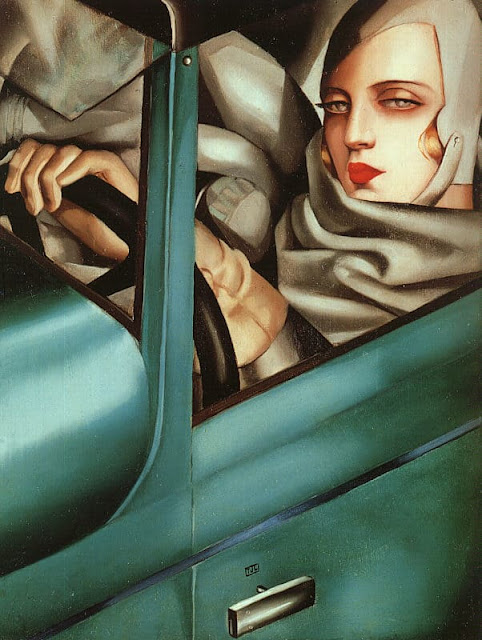Thirteen years ago I took some classes at my high school to get my learner's permit. The classes were really boring, but they were the way to secure my permit at no extra cost. Luckily I could find plenty of resources online to aid me in my pursuit. When it was time to take the theory exam I (subconsciously) started to connect some dots. I decided to fail my test. Back then I didn't want to face the reason why I did so (also known as coping). It wasn't until years later that I did want to. After I had gained self-consciousness.
My mind has always been very protective of itself. I'm writing about it like it isn't part of me, but let's just say that it isn't actively a part of me. Because if it was I wouldn't be sharing all this. This is me being vulnerable and opening up. Let's go back to me flunking the theory test. The actual reason why I did, is because I realized what would happen after I'd received my learner's permit. I would've had to start taking driving lessons or, even worse, my dad would've taught me. Memories of him teaching my mom start seeping in: a red Peugeot 205, my mom in the driver's seat, my dad in the passenger's seat and my brother and me in the backseat. It' not a pleasant memory. The only pleasant thing is how my brother and I would play in and on that car, parked in our backyard, after my parents got a new one (it was a Peugeot 605 SR for those interested in cars). So it's no longer a mystery why I purposely failed that test. I just didn't want to be taught to drive by my father.  |
"Autoportrait (Tamara in a Green Bugatti)" (1928) by Tamara de Lempicka
|
Another reason is because I didn't want any more responsibilities. The summer before, my mother had given birth to my youngest sister (a whopping fifteen years my junior). My other sister (only two years my junior) and I were mostly responsible for taking care of her. Weekends were filled with changing her diapers, bathing her and feeding her in the middle of the night. It was a thankless job. My parents never acknowledged how much effort it took from us to do that while also balancing school and our social lives. That year I'd given up on having a social life outside of school. Getting my permit would just mean even more responsibilities from me. What to most teenagers would mean freedom became a burden to me. Today I still don't have a driver' license and I'm fully dependent on public transportation. Luckily I live in a city where I don't need one either.
It was hard for me to accept the truth. This sense of self-consciousness wasn't present at all, but I can, however, pinpoint the exact moment I gained it. It's when I was writing my personal item for a project for a language-related course (I really don't remember what it was named) in high school. My French teacher sent it to me two years later because he'd kept it for himself. He told me that it was "a beautiful piece of writing coming from a person with original ideas and from whom he's learned something. He was very happy to find it whilst cleaning his folders." I honestly never knew what to say to him when he suggested I'd write a book. And yes, I do feel a hint of sadness that he might never read this. Just in case he ever does, I'd like to thank him for his supportive words. He's definitely a teacher I'll never forget. The piece was originally written in Dutch, but I've translated it so it can be "enjoyed globally." I did keep the original lay-out.
“Well, it’s not real scientific, but I heard an ordinary name like Caroline can lead people to have ordinary
expectations about a person.” [1]
Honestly, this is true. If you say your name's "Ann" people won't be as curious to your background. They won't bombard you with questions. They'll easily accept your name's "Ann." But if you're named "Nesrine" for instance, they'll immediately ask: "Is that Spanish, French, Turkish or something?" And, all of a sudden, they'll start listing off every nationality they could possibly think of. Personally I think this is one of the best reactions ever: "Nesrine? Oh, how exotic!" That's what Ellen, a colleague from Tropical, told me when she learned my name.
Nesrine Naïmane. Nes-reen Nah-ee-mah-nee. Two names. One first name and one surname. Two words. Do they actually hold any meaning? Well, Nesrine means "wild rose." Comparable to the wild rose described in a poem by Reiner Kunze. He's a poet from former East Germany. He was an advocate for communism.
“Love is like a wild rose in us. She takes root in the eyes, when you and your loved one's eyes meet.” [2]
In other words: the wild rose is some kind of weed that takes control of you, possesses you when you're in love.
No, no. I'm nothing like that at all. At least, I think so. Honestly, I don't know myself all that well. I know what I find interesting, what I like to do and what I don't. But actually knowing myself? Well, I can't perfectly predict what I'm gonna do tomorrow or the day after tomorrow. But if you were to ask what I'm thinking about or what my opinion is on some matter. Then I'd only give you an answer if you're genuinely interested in my thoughts or opinions. That doesn't happen often by the way, me honestly sharing my opinions with someone. I probably only do it seldom or never because I'm "scared" that my opinions will provoke the wrong responses. And yes, that does happen often. I don't really care; you got what you asked for.
You can tell in the final paragraph my self-consciousness kicks in. To me it is remarkable how my 17-year-old self dared to admit this fear of provoking wrong responses to my opinions. It's something I've had to deal with in my last three years of high school (yes, it's because I was an annoying know-it-all and an alleged wiseguy). It reached its peak when I said that I had too much of a personality when asked why I wasn't competing in a beauty pageant. The girl who was competing didn't even ask me what I meant with that. I immediately became a persona non grata to her.
 |
"The Telephone" (1930) by Tamara de Lempicka
|
To some being conscious of the self might seem overwhelming - frightening, even - but to me it has helped me understand myself. With my gained self-consciousness I'm better at acknowledging when I feel a certain way and why I feel that way. It has definitely helped me recovering from my depression. Writing is somewhat therapeutic to me and what stream of consciousness would there be if I wasn't conscious of my own self.
Thank you, and take care.






Comments
Post a Comment